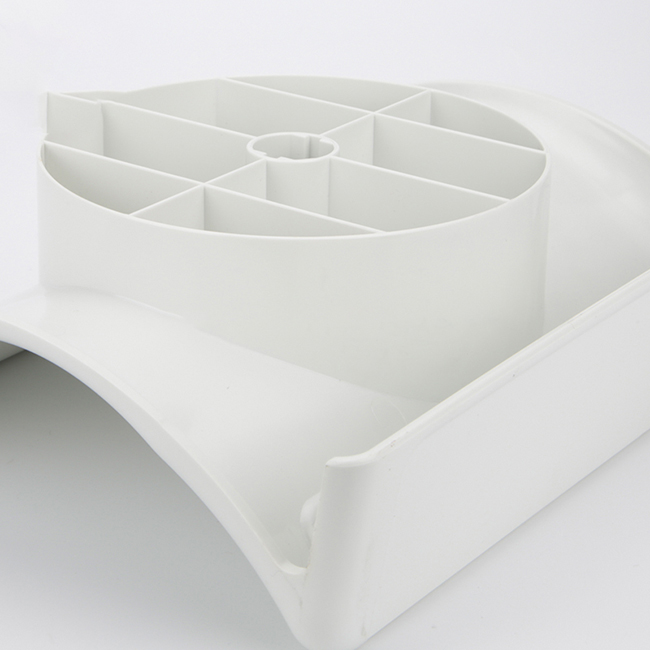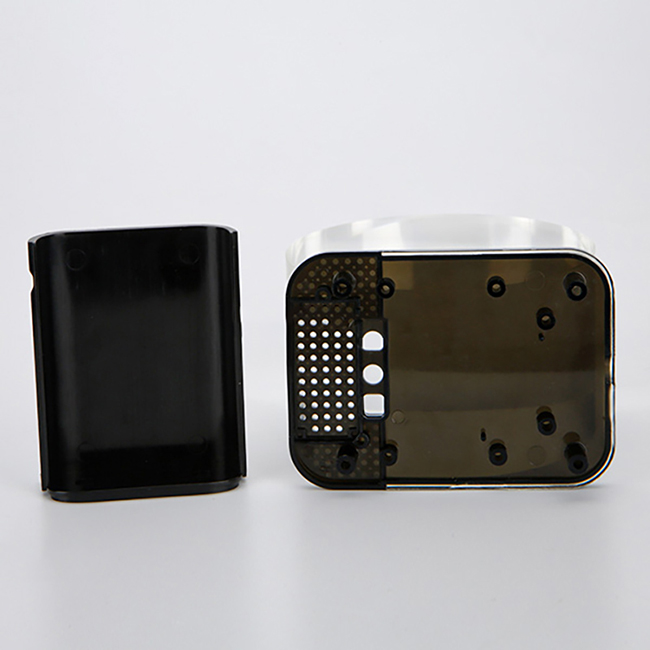Table of Contents
Advantages of Using CNC Machining for Plastic Injection Molds
CNC machining has revolutionized the manufacturing industry, particularly in the realm of plastic injection molding. This advanced technology offers a wide range of benefits that make it the preferred method for creating high-quality plastic injection molds. In this article, we will explore the advantages of using CNC machining for plastic injection molds.
One of the primary advantages of CNC machining for plastic injection molds is its precision. CNC machines are capable of producing extremely accurate and complex molds with tight tolerances. This level of precision ensures that the final product will meet the exact specifications required for the intended application. Additionally, CNC machining allows for the creation of intricate designs and features that would be difficult or impossible to achieve using traditional methods.
Another key advantage of CNC machining for plastic injection molds is its efficiency. CNC machines are able to operate continuously, 24 hours a day, 7 days a week, without the need for breaks or downtime. This means that molds can be produced quickly and efficiently, reducing lead times and increasing productivity. Additionally, CNC machining allows for the automation of many processes, further streamlining production and reducing the risk of errors.
In addition to precision and efficiency, CNC machining offers a high level of consistency and repeatability. Once a mold design has been programmed into a CNC machine, it can be replicated with the same level of accuracy and quality every time. This ensures that each mold produced will be identical to the original, eliminating variations that can lead to defects or inconsistencies in the final product.
CNC machining also offers a high degree of flexibility and versatility. With CNC machines, it is possible to create molds in a wide range of sizes, shapes, and materials. This flexibility allows manufacturers to produce molds for a variety of applications, from small, intricate parts to large, complex components. Additionally, CNC machining can be used to create molds for a wide range of materials, including thermoplastics, thermosets, and elastomers.
Furthermore, CNC machining offers a cost-effective solution for producing plastic injection molds. While the initial investment in CNC equipment may be higher than traditional machining methods, the long-term savings are significant. CNC machines are able to produce molds quickly and efficiently, reducing labor costs and minimizing waste. Additionally, the high level of precision and repeatability offered by CNC machining helps to minimize the risk of errors and defects, further reducing costs associated with rework or scrap.
Overall, CNC machining is a highly effective and efficient method for producing plastic injection molds. Its precision, efficiency, consistency, flexibility, and cost-effectiveness make it the preferred choice for manufacturers looking to create high-quality molds for a wide range of applications. By utilizing CNC machining for plastic injection molds, manufacturers can ensure that their products meet the highest standards of quality and performance.
Common Challenges in Machining Complex Injection Mold Designs
Machining complex injection mold designs can present a number of challenges for manufacturers. These molds are used in the plastic injection molding process to create a wide range of products, from automotive parts to medical devices. The precision and accuracy required in machining these molds are crucial to ensuring the quality and consistency of the final product.
One of the common challenges in machining complex injection mold designs is achieving tight tolerances. The molds must be machined to very precise specifications in order to produce parts that meet the required standards. This can be particularly challenging when working with intricate designs or complex geometries. Machinists must have a high level of skill and expertise to ensure that the molds are machined accurately and consistently.
Another challenge in machining complex injection mold designs is dealing with hard materials. Many molds are made from materials such as hardened steel or aluminum, which can be difficult to machine. These materials are often wear-resistant and have high tensile strength, making them challenging to work with. Machinists must use specialized tools and techniques to machine these materials effectively and efficiently.

In addition to tight tolerances and hard materials, another challenge in machining complex injection mold designs is achieving smooth surface finishes. The surface finish of the mold can have a significant impact on the quality of the final product. A rough or uneven surface finish can result in defects in the molded parts, such as sink marks or surface imperfections. Machinists must pay close attention to the machining process to ensure that the mold has a smooth and uniform surface finish.
One of the key factors in overcoming these challenges is the use of advanced machining technologies. CNC machining, for example, allows for precise control over the machining process, enabling machinists to achieve tight tolerances and smooth surface finishes. High-speed machining techniques can also be used to improve efficiency and productivity when working with hard materials.
Another important factor in machining complex injection mold designs is the use of specialized cutting tools. Carbide end mills, for example, are commonly used in machining hardened materials due to their high hardness and wear resistance. Diamond-coated tools can also be used to achieve superior surface finishes. Machinists must carefully select the appropriate cutting tools for the specific requirements of the mold design.
In conclusion, machining complex injection mold designs presents a number of challenges for manufacturers. Achieving tight tolerances, working with hard materials, and achieving smooth surface finishes are all critical aspects of the machining process. By using advanced machining technologies and specialized cutting tools, machinists can overcome these challenges and produce high-quality molds that meet the required specifications. With careful attention to detail and precision, manufacturers can ensure the success of their plastic injection molding processes.
| Surface finish | Polishing Finish / Slik Print / Texture Finish / Rubber Painting / Glossy Finish / Painting / Slik-Screen / Pad Print / EMI Coating / Electronic Plating / Laser Marking / Etc. |
| Production Process | Orders-Raw Materials- Production-Quality Inspection -Packaging-Shipment |
| Delivery | PE bag + paper card/paper skin + export-grade carton / crate / Pallet |





